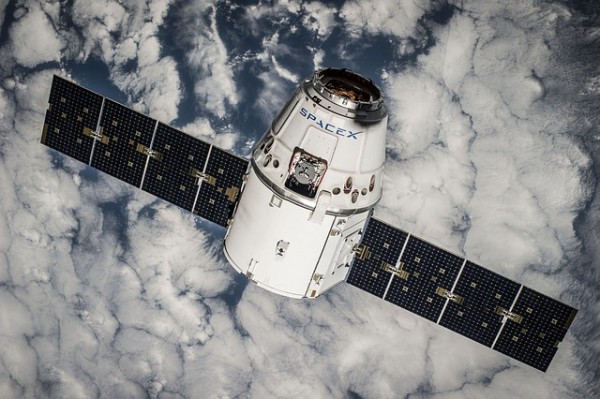By Staff Reporter, | November 27, 2016

The satellite will be launched using a Falcon 9 rocket from the Vandenberg Air Force base in California in April 2021. (Pixabay)
The National Aeronautics and Space Administration (NASA) has awarded Elon Musk's SpaceX a contract to launch its Surface Water and Ocean Topography (SWOT) mission satellite.
The satellite will be launched using a Falcon 9 rocket from the Vandenberg Air Force Base in California in April 2021, the agency announced on Tuesday. The total project cost will be $112 million.
Like Us on Facebook
The SWOT mission plans to study how the water bodies on earth change over time. As much as 90 percent of the surface water on the Earth will be surveyed twice every 21 days. NASA is collaborating with French and Canadian space agencies for the mission.
SpaceX has already won NASA contracts to supply cargo to the International Space Station (ISS) and to carry crew members to the ISS from early next year. The latest contract was awarded in spite of the failure of a Falcon 9 rocket, which exploded in Cape Canaveral in September.
The company has not concluded its investigation into the mishap yet and has so far failed to fix its cause. SpaceX will have to obtain an official clearance to continue its space flights, as it remains grounded after the Falcon 9 explosion.
In January, SpaceX launched Jason-3, an ocean monitoring satellite. In 2017, it will launch the Transiting Exoplanet Survey Satellite (TESS), which will help monitor bright stars and detect small planets near them.
"We're excited to carry this critical science payload into orbit for NASA," SpaceX President and COO Gwynne Shotwell said. "We appreciate NASA's partnership and confidence in SpaceX as a launch provider," he added.
Musk is driven by the idea of colonizing Mars. He wants to start sending private missions to the planet from as early as 2018 and start shuttling human beings there by 2024.
-
Use of Coronavirus Pandemic Drones Raises Privacy Concerns: Drones Spread Fear, Local Officials Say

-
Coronavirus Hampers The Delivery Of Lockheed Martin F-35 Stealth Fighters For 2020

-
Instagram Speeds Up Plans to Add Account Memorialization Feature Due to COVID-19 Deaths

-
NASA: Perseverance Plans to Bring 'Mars Rock' to Earth in 2031

-
600 Dead And 3,000 In The Hospital as Iranians Believed Drinking High-Concentrations of Alcohol Can Cure The Coronavirus

-
600 Dead And 3,000 In The Hospital as Iranians Believed Drinking High-Concentrations of Alcohol Can Cure The Coronavirus

-
COVID-19: Doctors, Nurses Use Virtual Reality to Learn New Skills in Treating Coronavirus Patients







